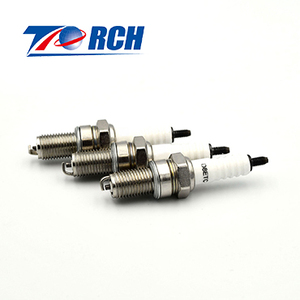Introduction to Types of Gaskets for Cars
Gaskets play a crucial role in the performance of a vehicle, serving as the vital barrier between different components to prevent leaks and maintain optimum performance. Understanding the various types of gaskets for cars allows vehicle owners and mechanics to choose the right ones for maintenance and repairs. In this overview, we will explore the common types of gaskets, their functions, applications, and features.
Types of Gaskets for Cars
Gaskets can be categorized into several types based on their application and material. Here is a detailed breakdown:
- Head Gaskets:
- Located between the cylinder head and the engine block, head gaskets create a seal to prevent coolant and oil leaks.
- Vital for maintaining compression in the engine cylinder.
- Intake Manifold Gaskets:
- Seals the intake manifold to the engine block.
- Prevents air and fuel mixture leaks and ensures optimal engine performance.
- Exhaust Gaskets:
- Located between the exhaust manifold and the cylinder head.
- Plays a role in minimizing exhaust leakages, ensuring efficient engine operation.
- Oil Pan Gaskets:
- Seal the oil pan to the bottom of the engine.
- Prevents oil leaks critical for engine lubrication.
Functions and Features of Car Gaskets
The primary function of gaskets in cars is to provide a leak-proof seal between different engine components. Let's look into the key features:
- Material:
- Common materials include rubber, silicone, cork, and metal.
- Each material is selected based on its ability to withstand specific pressures and temperatures.
- Thermal Resistance:
- Many gaskets are designed to handle extreme temperatures, ensuring longevity.
- Especially crucial for components near the engine.
- Compression Set Resistance:
- Gaskets need to maintain their form under compression for effective sealing.
- This ensures that they continue to perform over time without degradation.
Applications of Types of Gaskets in Cars
The applications of gaskets in cars are diverse, enhancing the overall efficiency and reliability of vehicle performance. Here are some typical applications:
- Engine Assembly:
- Gaskets are integral to engine assembly, ensuring all parts are tightly sealed to prevent leaks.
- Critical for maintaining the vehicle’s power and efficiency.
- Cooling Systems:
- Used in various applications such as water pumps and thermostat housings to prevent coolant leaks.
- Ensures optimal engine temperature and performance.
- Fuel Systems:
- Gaskets in fuel injection systems ensure precise mixing of air and fuel and prevent leaks.
- Vital for maintaining fuel efficiency and performance.
Advantages of Using Quality Gaskets in Vehicles
Investing in high-quality types of gaskets for cars offers a multitude of advantages:
- Durability:
- High-quality gaskets are designed to withstand wear and tear, offering longer life spans.
- Reduces the frequency and costs of repairs.
- Better Performance:
- Quality gaskets ensure that all engine components work as intended, enhancing overall engine performance.
- Avoids issues like overheating and other malfunctions.
- Cost-Effectiveness:
- Investing in quality gaskets can reduce the risk of engine damage due to leaks.
- Initial higher costs can lead to substantial savings in the long run.












































